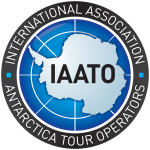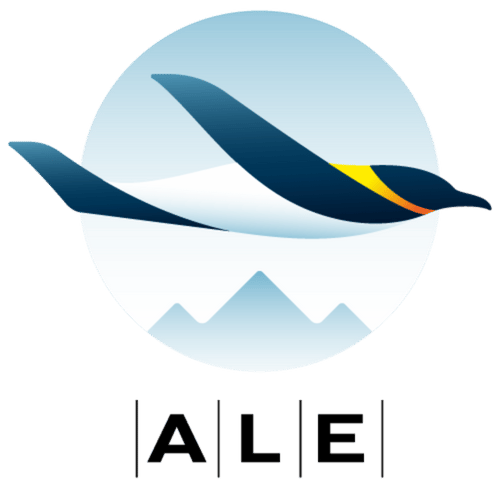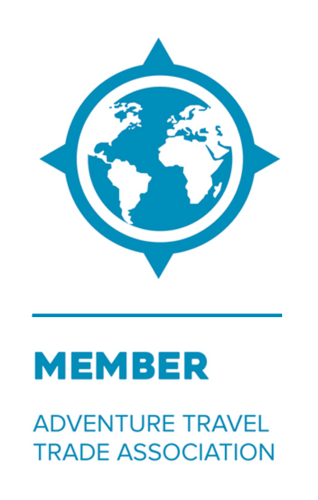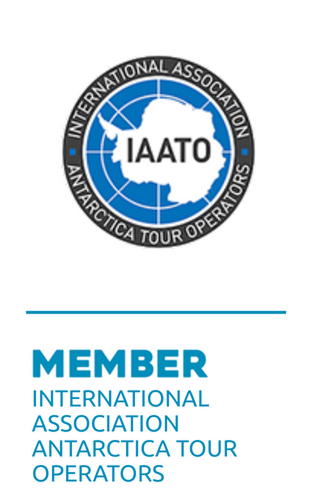Get Exclusive Expedition Insights & Resources
 Our mission is to set the highest possible environmental standards and implement best practices. We believe in responsible and sustainable tourism where our guests leave Antarctica with a greater appreciation of its remarkable natural values. We encourage a culture of environmental stewardship through training and our activities are planned to have the minimum effect on the environment.
Our mission is to set the highest possible environmental standards and implement best practices. We believe in responsible and sustainable tourism where our guests leave Antarctica with a greater appreciation of its remarkable natural values. We encourage a culture of environmental stewardship through training and our activities are planned to have the minimum effect on the environment.
As a founding member of International Association of Antarctica Tour Operators (IAATO), we are committed to sustainable Antarctic tourism.
Antarctic Treaty & US Legislation
Antarctica is protected under the Antarctic Treaty, as a natural reserve dedicated to peace and science. ALE operations are planned and conducted so as to have no more than a minor or transitory impact on the Antarctic environment. Our operations comply with the Antarctic Conservation Act which formalizes US adherence to Antarctic Treaty and Protocol requirements and as a US company, we are bound by US legislation governing Antarctic activities.
All ALE operations meet the requirements of Article 8 and Annex I of the Protocol on Environmental Protection to the Antarctic Treaty and the provisions of U.S. 40 CFR Part 8, “Environmental Impact Assessment of Non-governmental Activities in Antarctica; Final Rule”.
Environmental Assessments & Permits
All proposed Antarctic activities must undergo an environmental impact assessment. ALE holds a multi-year Initial Environmental Evaluation assessed by the US Environmental Protection Agency and a Waste Management Permit issued by the NSF Office of Polar Programs. Each year we submit annual Advance Notification to the US Department of State.
All visitors to Antarctica are required to have authority from a relevant government. Guests on ALE experiences are fully covered by our authorities and permits. Some governments require their citizens to inform them of their trip to Antarctica. We will let you know if yours is one of those governments.
Some of the expeditions and projects that we support will need to have their own permit because they are on a route or undertaking an activity that is not covered by ALE’s environmental documentations. We will help to guide you through the process, should your expedition require its own permit.
Visitor Guidelines
Our guests play a crucial role in helping us care for the Antarctic environment. Visitor Guidelines provide practical steps to help each traveler minimize his/her impact.
Biosecurity
Non-native species are one of several major threats to biodiversity – globally and in the Antarctic. ALE takes biosecurity seriously, making every effort to prevent the introduction of non-native species.
We ask all visitors to clean their equipment thoroughly before traveling and follow the guidelines outlined below:
All groups providing their own food, cargo, crates, store rooms, shipping containers, vehicles, and aircraft are required to follow best practices for vehicle cleaning, food importation into Chile, aircraft disinfection, and cargo handling, as outlined in:
Reducing our Footprint
- Our camp is solar powered and sleeping tents are passively heated by the 24-hour sunlight
- Gray (waste) water is minimized through the use of sanitizing hand gel and sponge bathing at our camps
- Spill mats and specially designed, sled-mounted fueling stations prevent accidental snow contamination when refueling vehicles and aircraft
- Visitors can help us reduce waste by following IAATO’s Waste Reduction Guidelines
Waste Removal
- All garbage is removed from Antarctica. Nothing is burned. Nothing is buried
- Empty fuel drums are recovered and removed from Antarctica
- All human waste – urine and feces – is removed from Union Glacier Camp for appropriate disposal in Chile
- Where practicable solid human waste is removed from field camps, including at Mount Vinson and within one degree of the South Pole
- Gray water is strained before disposal in designated sites
- We currently re-cycle cardboard, paper, tin and aluminum cans, other metals and some plastics. We continue to explore new re-cycling opportunities in Punta Arenas, Chile
Wildlife Protection
- Equipment is cleaned prior to departure for Antarctica to prevent the accidental introduction of diseases or alien species
- All poultry products are certified by the Chilean agricultural service to be free of Newcastle’s Disease
- We follow established aircraft and Emperor Penguin Colony Visitor Guidelines to minimize our impact when visiting emperor penguin colonies
Mount Vinson
- We work closely with guides and climbers to keep Mount Vinson pristine
- ALE Vinson Rangers manage base camp and oversee activities on the mountain
- All garbage, leftover food and fuel are removed from the mountain
- Toilet facilities are provided at Vinson Base Camp. Solid human waste is flown to Union Glacier Camp for removal from Antarctica
- Climbers bag and pack out solid human waste from the mountain and use designated urine/gray water sites at intermediate camps
- All climbers are required to follow our Vinson Waste Guidelines.



